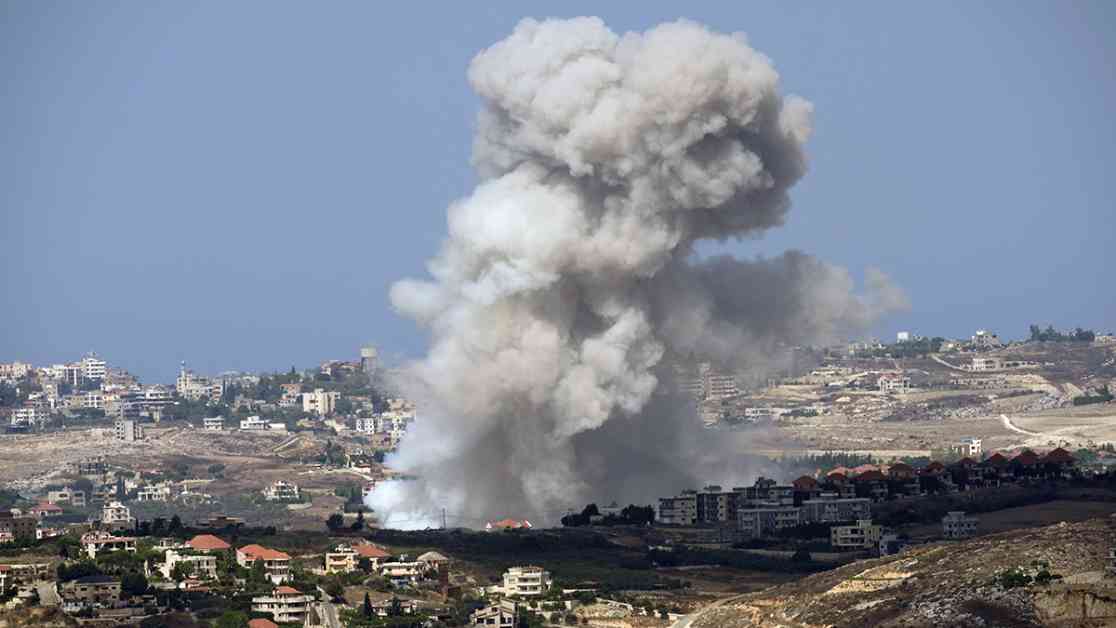Israeli airstrikes in Lebanon on Monday resulted in the deaths of more than 490 people, including over 90 women and children, according to Lebanese authorities. This marked the deadliest attack since the 2006 Israel-Hezbollah war. The Israeli military issued warnings to residents in southern and eastern Lebanon to evacuate as they prepared for a broader air campaign against Hezbollah.
In response, thousands of Lebanese citizens fled the south, causing major traffic jams on the main highway leading to Beirut. Lebanon’s health ministry reported a total of 492 fatalities, including 35 children and 58 women, with 1,645 individuals sustaining injuries. This devastating toll comes shortly after a recent attack on communication devices in Lebanon.
Israeli Prime Minister Benjamin Netanyahu addressed Lebanese civilians in a recorded message, urging them to take evacuation warnings seriously and emphasizing their safety. The military spokesperson, Rear Adm. Daniel Hagari, stated that Israel would do whatever was necessary to remove Hezbollah from the border area. Hagari highlighted the extensive damage inflicted on Hezbollah during Monday’s airstrikes but did not specify the operation’s timeline.
The ongoing conflict between Israel and Hezbollah intensified with Israeli warplanes targeting numerous Hezbollah sites, including missile stockpiles and attack drones. The military accused Hezbollah of concealing weapons within residential areas, turning southern Lebanon into a war zone. Israel’s military chief, Lt. Gen. Herzi Halevi, outlined plans for further operations against Hezbollah to secure the northern borders.
Hezbollah retaliated by launching rockets towards Israel, including military bases and defense facilities. The escalating violence raised concerns about the possibility of a full-scale war. The conflict coincides with Israel’s engagement with Hamas in Gaza and efforts to negotiate the release of hostages taken during an attack by Hamas in October. Hezbollah pledged to continue supporting Hamas through its strikes against Israel.
The cycle of airstrikes and counterstrikes resulted in a significant death toll in Lebanon, surpassing the casualties from the 2020 Beirut port explosion. Hospitals in affected areas were overwhelmed by the influx of wounded individuals, prompting the Lebanese government to declare a state of emergency. Israel focused on aerial operations to diminish Hezbollah’s offensive capabilities.
The conflict’s impact extended to communities on both sides of the border, leading to mass evacuations and warnings about potential airstrikes. The psychological warfare between the two sides intensified, with accusations of civilian casualties and infrastructure damage. As tensions escalate, the prospect of a ceasefire remains uncertain, with both Israel and Hezbollah adamant about their objectives.
In the midst of this deadly conflict, innocent civilians on both sides continue to bear the brunt of the violence. The humanitarian crisis unfolding in Lebanon underscores the urgent need for a peaceful resolution to prevent further loss of life and destruction. The international community must step in to facilitate dialogue and de-escalate tensions before more lives are lost in this devastating conflict.
